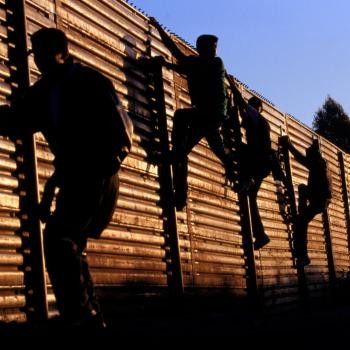This plan would seem to distribute the pain across David French's irreconcilable majorities. But no category of regulatory activities will be suspended. There will be no regulatory relief for the struggling farmers of the Central Valley. The state's cap-and-trade scheme will go into effect in 2012, driving a significant increase in all consumer prices. CALGreen, the state's new set of regulations on building construction, was implemented in January 2011. Off-coast drilling will be rigorously prohibited, ensuring billions in foregone revenues. The fourth majority, unlike the other three, will not have to share the pain.
It is time to recognize the existence of this fourth majority and put its priorities on the chopping block along with everyone else's. In the 1970s, Americans complained that economic activity was being taxed into the ground. Today, we can justly complain not only that economic activity is being regulated into the ground, but that whole realms of productive, job-creating, tax-paying economic activity are simply prohibited outright.
A commenter at French's column asked how religion is relevant to this topic—and that's not a bad question. A key point of relevance, in my view, is found in Jesus' rebuke to the religious leaders of his day. In Luke 11:46, he says to the experts in the law, "Woe to you . . . you load people down with burdens they can hardly carry, and you yourselves will not lift one finger to help them" (NIV). In the chapter's overall context, Jesus is addressing the religious leaders' emphasis on the ritualistic observation of regulations. He makes clear in verses 37-45 that observing rules does not produce righteousness; in prioritizing the imposition of burdensome rules, the religious leaders are not just loading the people down, they are focusing on the wrong thing.
When the effects of our regulatory approach are to arbitrarily eliminate more and more people's livelihoods and artificially drive up the price of basic goods, it is time to reexamine the purpose and scope of the regulatory apparatus. Like the Pharisees of Jesus' day, we have increasingly bought into the idea that we are somehow saving ourselves, or morally transforming our future as a people, with our regulations. In the process, we have begun to justify heaping burdens on each other in an arbitrary manner that is not just undemocratic but unethical. This is a properly Christian concern.
Our fourth majority is putting so much economic activity out of bounds that it is no longer valid to assess our economic or fiscal prospects as if we have only three majorities that matter. The impact of the fourth is gradually overtaking them all. Until we reconsider our acquiescence in its agenda, and rethink at least some of our self-imposed constraints, we won't have a clear idea of what the gap really is between what we want, what we can produce, and what we owe.





